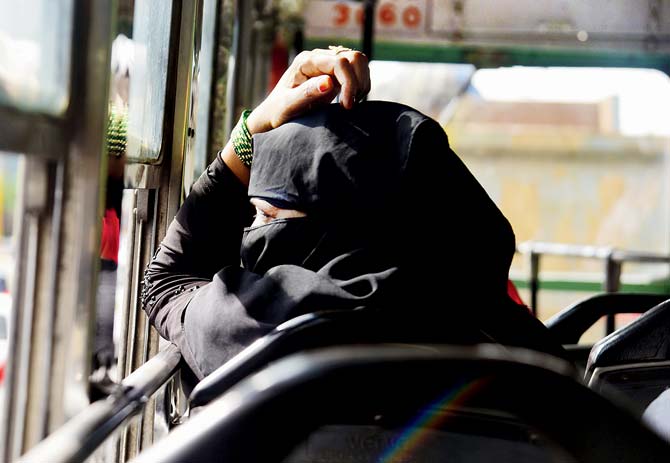That's what the All India Muslim Personal Law Board has to say on the Supreme Court verdict, adding that the emphasis should be on educating the masses about better ways to resolve disputes in marriage


Representational pic
ADVERTISEMENT
While the Supreme Court's verdict on triple talaq is being held as a landmark judgment by many, according to the All India Muslim Personal Law Board (AIMPLB), it will not change the ground reality.
"In spite of the SC verdict, this issue of triple talaq will not be sorted out unless society is reformed from within," said Dr Kazim Abdul Illias, a member of the AIMPLB. "There are many harsh laws in India preventing rape, yet we see that the number of rape cases is ever-increasing. This means that the law is unable to stop rape. People might think that this SC judgment is a landmark one because the Parliament will form a law on it, but this is not the case."
Also read: Rishi Kapoor, Farhan Akhtar and other celebs hail judgement on triple talaq

Five Muslim women had filed the petitions challenging the practice of 'triple talaq' in which the husband pronounces 'talaq' thrice in one go, sometimes even by phone or a text message. Pic for representation/Atul Kamble
He also said that the apex court could not implement the verdict, and only the various Muslim organisations across the country will be able to enforce it.
'Iddat is better'
According to Dr Kazim, the focus should be on educating the Muslim masses on the correct teachings and practices of the Quran. "We think that the Quran is very clear on restricting the use of triple talaq – there are so many other options through which a husband and wife can settle their dispute. One of these methods is arbitration," he said.
Also read: Women divorced through controversial triple talaq system speak about landmark judgement
"The Quran states that if the marriage between a husband and wife is so crushed that they are not ready to live together and talaq is the only option available, in that case, they can pronounce a single talaq (when the wife is not menstruating and is 'clean'). After pronouncing a single talaq, the wife will live with the husband for three months; during this time if the duo can make their marriage work, the talaq will be over," Dr Kazim explained.
Also read - Triple Talaq: SC rules controversial Muslim divorce law "unconstitutional"
Teaching the masses
This three-month waiting period is known as iddat, a much healthier approach that allows a couple to rethink their decision and get back together if they wish to. "But 90 per cent of the Muslims do not know correct Quranic procedures such as this one, and need to be educated on the same," said Dr Kazim, further adding, "We have already written to the qazis, asking them to educate newly weds on how to properly end the marriage with an apt talaq."
AIMPLB has called for a meeting of its executive members on September 10 in Bhopal to discuss its next step on the matter.
Related photo story - Mumbai: 12 cases of molestation on local trains
 Subscribe today by clicking the link and stay updated with the latest news!" Click here!
Subscribe today by clicking the link and stay updated with the latest news!" Click here!






